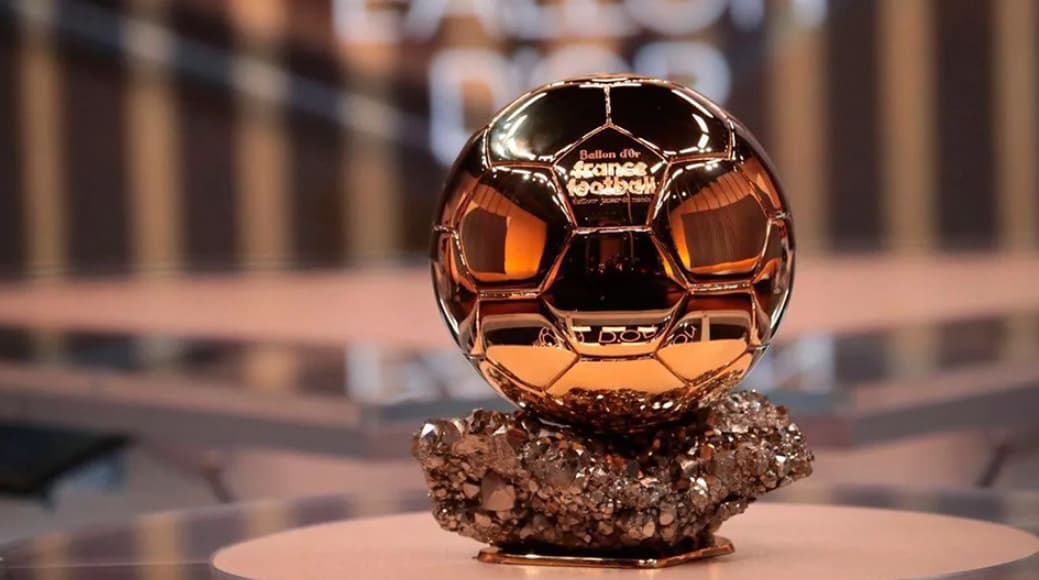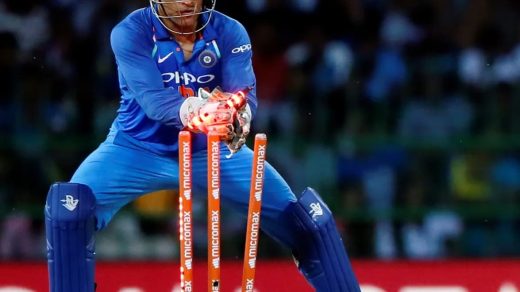The ballon d’or winners list represents football’s most exclusive club of legends.
Since 1956, this prestigious award has celebrated the world’s greatest players, creating a hall of fame that every footballer dreams of joining.
From Stanley Matthews being the first winner to Rodri’s historic 2024 victory, each champion has earned their place through exceptional talent and remarkable achievements.
The award has evolved from recognizing only European players to becoming a truly global prize that celebrates football excellence from every continent.
Lionel Messi leads with 8 victories, while Cristiano Ronaldo follows with 5 wins, showing how these modern legends have dominated the award.
Ballon d’Or Winners List

Understanding this prestigious prize helps us appreciate what makes a player truly world-class and why certain moments in football history matter so much.
Whether you’re a casual fan or a football enthusiast, learning about the Golden Ball award gives you insight into the sport’s greatest individual achievements and the players who have shaped football history through their incredible performances on the biggest stages.
List of Men’s Ballon d’Or Award Winners
Here are the complete Men’s Ballon d’Or winners from 1956 to 2024:
| Year | Player | Nationality | Club |
|---|---|---|---|
| 2024 | Rodri | Spain | Manchester City |
| 2023 | Lionel Messi | Argentina | Inter Miami |
| 2022 | Karim Benzema | France | Real Madrid |
| 2021 | Lionel Messi | Argentina | Paris Saint-Germain |
| 2020 | Not awarded | COVID-19 | N/A |
| 2019 | Lionel Messi | Argentina | Barcelona |
| 2018 | Luka Modric | Croatia | Real Madrid |
| 2017 | Cristiano Ronaldo | Portugal | Real Madrid |
| 2016 | Cristiano Ronaldo | Portugal | Real Madrid |
| 2015 | Lionel Messi | Argentina | Barcelona |
| 2014 | Cristiano Ronaldo | Portugal | Real Madrid |
| 2013 | Cristiano Ronaldo | Portugal | Real Madrid |
| 2012 | Lionel Messi | Argentina | Barcelona |
| 2011 | Lionel Messi | Argentina | Barcelona |
| 2010 | Lionel Messi | Argentina | Barcelona |
| 2009 | Lionel Messi | Argentina | Barcelona |
| 2008 | Cristiano Ronaldo | Portugal | Manchester United |
| 2007 | Kaká | Brazil | Milan |
| 2006 | Fabio Cannavaro | Italy | Real Madrid |
| 2005 | Ronaldinho | Brazil | Barcelona |
| 2004 | Andriy Shevchenko | Ukraine | Milan |
| 2003 | Pavel Nedvěd | Czech Republic | Juventus |
| 2002 | Ronaldo | Brazil | Real Madrid |
| 2001 | Michael Owen | England | Liverpool |
| 2000 | Luís Figo | Portugal | Real Madrid |
| 1999 | Rivaldo | Brazil | Barcelona |
| 1998 | Zinedine Zidane | France | Juventus |
| 1997 | Ronaldo | Brazil | Internazionale |
| 1996 | Matthias Sammer | Germany | Borussia Dortmund |
| 1995 | George Weah | Liberia | Milan |
| 1994 | Hristo Stoichkov | Bulgaria | Barcelona |
| 1993 | Roberto Baggio | Italy | Juventus |
| 1992 | Marco van Basten | Netherlands | Milan |
| 1991 | Jean-Pierre Papin | France | Marseille |
| 1990 | Lothar Matthäus | Germany | Internazionale |
| 1989 | Marco van Basten | Netherlands | Milan |
| 1988 | Marco van Basten | Netherlands | Milan |
| 1987 | Ruud Gullit | Netherlands | Milan |
| 1986 | Igor Belanov | Soviet Union | Dynamo Kyiv |
| 1985 | Michel Platini | France | Juventus |
| 1984 | Michel Platini | France | Juventus |
| 1983 | Michel Platini | France | Juventus |
| 1982 | Paolo Rossi | Italy | Juventus |
| 1981 | Karl-Heinz Rummenigge | West Germany | Bayern Munich |
| 1980 | Karl-Heinz Rummenigge | West Germany | Bayern Munich |
| 1979 | Kevin Keegan | England | Hamburg |
| 1978 | Kevin Keegan | England | Hamburg |
| 1977 | Allan Simonsen | Denmark | Borussia Mönchengladbach |
| 1976 | Franz Beckenbauer | West Germany | Bayern Munich |
| 1975 | Oleg Blokhin | Soviet Union | Dynamo Kyiv |
| 1974 | Johan Cruyff | Netherlands | Barcelona |
| 1973 | Johan Cruyff | Netherlands | Barcelona |
| 1972 | Franz Beckenbauer | West Germany | Bayern Munich |
| 1971 | Johan Cruyff | Netherlands | Ajax |
| 1970 | Gerd Müller | West Germany | Bayern Munich |
| 1969 | Gianni Rivera | Italy | Milan |
| 1968 | George Best | Northern Ireland | Manchester United |
| 1967 | Flórián Albert | Hungary | Ferencvárosi TC |
| 1966 | Bobby Charlton | England | Manchester United |
| 1965 | Eusébio | Portugal | Benfica |
| 1964 | Denis Law | Scotland | Manchester United |
| 1963 | Lev Yashin | Soviet Union | Dynamo Moscow |
| 1962 | Josef Masopust | Czechoslovakia | Dukla Prague |
| 1961 | Omar Sívori | Italy | Juventus |
| 1960 | Luis Suárez | Spain | Barcelona |
| 1959 | Alfredo Di Stéfano | Argentina/Spain | Real Madrid |
| 1958 | Raymond Kopa | France | Real Madrid |
| 1957 | Alfredo Di Stéfano | Argentina/Spain | Real Madrid |
| 1956 | Stanley Matthews | England | Blackpool |
What is Ballon d’Or?
The Ballon d’Or is football’s most prestigious individual award. The name means “Golden Ball” in French, and it’s given every year to the player who has been the absolute best in the world.
Key Facts About the Award
Here’s what makes it special:
- Started in 1956 by France Football magazine
- Given annually to the world’s best football player
- Voted by journalists from top 100 FIFA-ranked countries
- Most famous individual prize in all of sports
- Beautiful golden trophy that players dream of winning
How the Voting Works
The voting process is straightforward and fair:
- 100 expert journalists from different countries vote
- Each journalist ranks 5 players from a 30-player shortlist
- Points awarded: 6 for 1st, 4 for 2nd, 3 for 3rd, 2 for 4th, 1 for 5th
- Highest total points wins the award
- Tie-breaker: Most first-place votes decides winner
What Judges Consider
Three main criteria determine the winner:
Individual Performance:
- Goals, assists, and overall stats throughout the season
- Impact on matches and game-changing moments
- Consistency over the full season
- Technical skills and playing ability
Team Success:
- Trophies won with club and national team
- Important victories in major competitions
- Leadership during crucial moments
- Contribution to team achievements
Character and Fair Play:
- Good behavior on and off the field
- Sportsmanship and respect for opponents
- Role model qualities for fans
- Professional conduct throughout the year
Award Evolution
The Ballon d’Or has changed significantly:
- 1956-1994: Only European players eligible
- 1995: Expanded to all players at European clubs
- 2007: Became global award for any professional player
- 2010-2015: Merged with FIFA award temporarily
- 2016-present: Returned to original France Football format
- 2018: Added women’s category (Ballon d’Or Féminin)
Who Can Win Ballon d’Or Award?
Any professional footballer can potentially win, but there are specific patterns and requirements that most winners share.
Basic Eligibility Requirements
To be considered, players must:
- Be active professional footballers
- Play regularly for a recognized club
- Participate in the judged season (August to July)
- Meet minimum appearance requirements
- Have clean disciplinary record
- Be nominated by the selection committee
Typical Winner Profile
Most champions share these traits:
Performance Level:
- Exceptional statistics in goals, assists, or defensive actions
- Match-winning performances in important games
- Consistency throughout the entire season
- Technical excellence that stands out globally
Team Success:
- Major trophies with club (Champions League, league titles)
- International success with national team
- Key role in team’s biggest achievements
- Leadership during pressure moments
Career Stage:
- Peak age: Usually 24-30 years old
- Experience: 5-10 years as professional
- Top club: Playing for elite European teams
- International recognition: Regular national team player
Position Analysis
Different positions have varying chances:
Forwards/Strikers (Best Odds):
- Score goals regularly – easy to measure success
- Create excitement with spectacular plays
- Get media attention for their achievements
- Examples: Messi, Ronaldo, Benzema
Midfielders (Good Chances):
- Control games and create opportunities
- Provide assists and some goals
- Show technical brilliance and vision
- Examples: Modric, Kaká, Rodri (2024)
Defenders (Rare Winners):
- Need exceptional leadership and tournament success
- Must win major trophies as team captain
- Require standout performances in crucial matches
- Examples: Cannavaro (2006), Beckenbauer
Goalkeepers (Almost Impossible):
- Only Yashin has won (1963)
- Need incredible statistics and tournament victories
- Must make legendary saves in big moments
- Very difficult due to position’s nature
International Tournament Impact
Major tournaments heavily influence voting:
World Cup Years:
- Tournament success provides huge advantage
- Top scorers get significant boosts
- Memorable performances remembered by voters
- National pride affects journalist opinions
Regional Championships:
- Euro/Copa America winners gain major benefits
- Player of Tournament award vis ery valuable
- Strong showings enhance individual reputation
- International goals count heavily in voting
FAQs on Ballon d’Or Winners List:
- Who has won the most Ballon d’Or awards?
Lionel Messi holds the record with 8 victories (2009, 2010, 2011, 2012, 2015, 2019, 2021, 2023). Cristiano Ronaldo is second with 5 wins (2008, 2013, 2014, 2016, 2017).
- Why wasn’t the 2020 award given?
The 2020 Ballon d’Or was cancelled due to COVID-19 pandemic. France Football felt it would be unfair to judge players because seasons were disrupted and schedules changed dramatically.
- Is there a women’s Ballon d’Or?
Yes! Since 2018, there’s been a Ballon d’Or Féminin for women. Aitana Bonmatí won in 2023 and 2024, while Alexia Putellas won in 2021 and 2022.
- Who was the youngest winner ever?
Ronaldo (Brazilian) won at 21 years and 96 days in 1997. Most winners are typically in their mid-to-late twenties when they first win the award.
- Has any goalkeeper won besides Yashin?
No, Lev Yashin remains the only goalkeeper to win the Ballon d’Or (1963). This shows how difficult it is for keepers to receive recognition despite their importance.
- Which country has the most winners?
Argentina leads with 9 total wins, mostly from Messi’s 8 victories. Brazil has 8 winners, and Portugal has 7 wins, largely from Ronaldo’s success.
- What’s the difference from FIFA’s The Best?
Ballon d’Or uses only journalist votes, while FIFA’s The Best includes coaches, captains, and fan voting. They’re separate awards with different criteria.
- Why did Rodri win in 2024?
Rodri’s victory was based on his exceptional season with Manchester City (Premier League champions) and Spain (Euro 2024 winners). His consistent excellence and leadership impressed voters more than flashier attacking players.
- Can someone win multiple years in a row?
Yes! Messi won 4 consecutive (2009-2012), and Platini won 3 straight (1983-1985). Sustained excellence at the highest level separates legends from great players.
- When is the ceremony held?
The Ballon d’Or ceremony takes place every October in Paris, France, at a prestigious venue with football’s biggest stars attending the glamorous event.
Also Check:
Conclusion:
The Ballon d’Or represents the ultimate recognition in football, celebrating nearly 70 years of individual excellence.
From Stanley Matthews in 1956 to Rodri in 2024, each winner has demonstrated exceptional skill, achieved remarkable success, and inspired millions of fans worldwide.
This prestigious award has evolved from a European-only prize to a truly global celebration of football talent.
Legendary players like Messi, Ronaldo, Zidane, and Ronaldinho have each defined different eras and playing styles, showing how the game continues to develop and improve.
Rodri’s 2024 victory proves that the award recognizes complete football excellence, not just spectacular goals.
His success as a defensive midfielder opens doors for future players in less glamorous positions, showing that every role can receive the recognition it deserves.
For young players dreaming of Golden Ball glory, the message is clear: work hard, be consistent, help your team win, and always behave professionally.
The next champion could come from anywhere in the world with enough dedication and talent.
Whether you’re a lifelong fan or new to football, understanding the Ballon d’Or gives you insight into what makes the sport so special.
It celebrates not just great players but great people who use their talents to inspire others and bring joy to millions of supporters around the globe.



